More than two years since the war escalated in Ukraine and ten years since it began, the impact of this conflict goes far beyond the borders of the country.
It's estimated that 30 per cent of Ukrainians may be affected by mental health issues, according to The United Nations Development Program (UNDP) June 2023 report. This means many are suffering from conditions such as depression, anxiety, and post-traumatic stress disorder (PTSD).
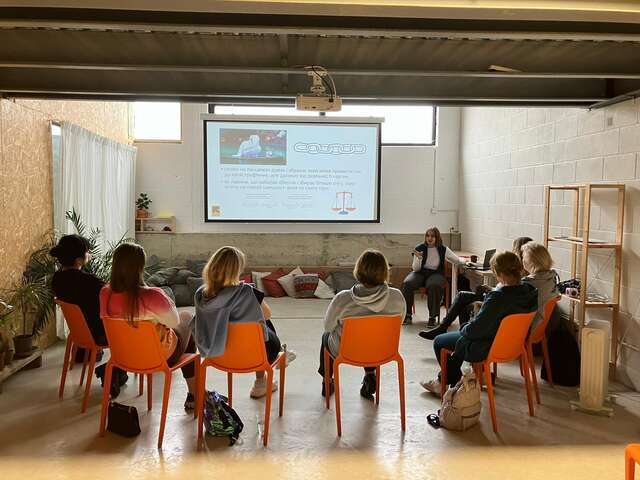
This Mental Health Awareness Week 2024, we speak to the courageous women who are breaking the silence and fighting stigma surrounding mental health support.
Inna, Hanna and Veronika had to leave their homes after the war escalated in Ukraine in 2022, all moving to different parts of the UK.
Inna’s story
Inna had to flee Ukraine with her husband and dog Cooper just days before the war escalated, leaving behind her home, friends and family in Kyiv.
Despite having only packed enough clothes for two weeks, Inna found herself unable to return, facing uncertainty about when she would be able to see her loved ones again.
Inna admitted: "I kept thinking ‘what am I going to do next, when am I going to see my friends, when am I going to see my mum, am I losing my job?’ There was so much uncertainty.”
The trauma of leaving her home took its toll on Inna's mental health, and she has little memory of her first month moving to West Sussex with her husband.
But as a trained psychotherapist, Inna recognised she needed support herself, crediting her family, therapist and dog for helping her begin to feel better.

"My dog was a constant reminder that I needed to go for a walk. I needed to eat. I needed to sleep,” Inna said.
Determined to help others facing similar challenges, Inna applied for a job as a Bilingual Integration Officer with the IRC and started the role soon after, leading integration sessions for Ukrainian women.
While working with different groups, she was struck by their shared mental health struggles.
A lot of them are feeling very lost. And there is a huge feeling of uncertainty because they don't know what's going to happen. Some of them have lost everything, they've lost their homes and they don't have anything to go back to. They understand they need to integrate and adapt, but it's still a huge burden on them to start thinking of establishing their life here. I’m trying to normalise mental health for Ukrainians.
Witnessing the need for more support in the UK, Inna worked on launching Wellbeing Days at the IRC which include sessions on trauma, stress management, and a relaxing yoga session.
Following 15 successful sessions, Inna has also recently created a four-week mental health course to teach coping skills tailored for Ukrainian refugees' experiences of displacement, loss and uncertainty.
"The more projects led by Ukrainians on mental health, the more support people are going to get,” she said.
“The healthier and happier people are, the easier it’s going to be to rebuild the country when we plan to do so, because if we don't have anything in our stock then how can we rebuild the whole nation?”
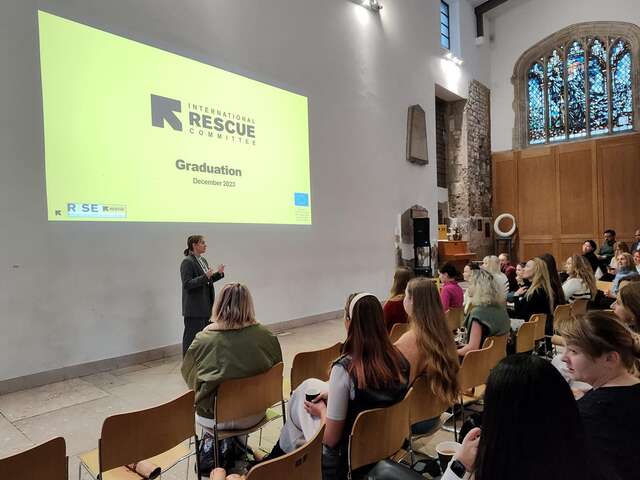
Hanna’s story
Hanna, a 33-year-old humanitarian worker, never imagined leaving behind her life and career as a legal aid coordinator for a charity in Kyiv.
But in November 2023, her apartment was destroyed which meant Hanna and her 13-year-old daughter Diana had to move to a small village in Cumbria – a stark contrast from the capital city they called home.
“It’s difficult because I feel like my mental health is really, really damaged,” she said.
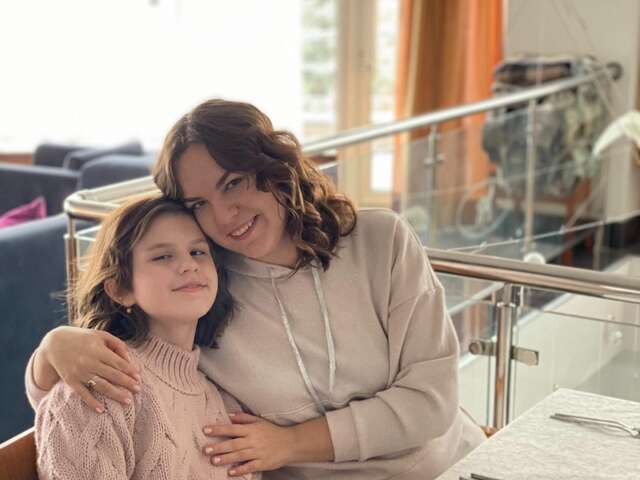
“Many people keep it inside too much, I have a lot of feelings and a lot of worry. I have a desire to work and a desire to help. But now I'm a job seeker.”
While Hanna begins restarting her career in the UK, her daughter Diana has faced her own challenges after arriving with little English language skills.
It’s an awful period for all teenagers because at this age they don't know what they really want. And now she has joined a British school and it’s completely different here. She’s trying to improve her confidence, she’s happy but at the same time she can’t speak the language and she is the only one in her school from Ukraine.
Despite the stress she is under, Hanna continues to be a role model to her daughter by focussing on her own mental health and recently attended a Wellbeing Day with the IRC.
“I'm safe in the UK, but at the same time I can feel depressed,” she said.
“Sometimes I can’t sleep and worry about the future because I don't know what will happen for me. That's why I'm doing everything I can to rebuild my life.”
Hanna added: “But I always need to make time to think about myself and my mental health.”
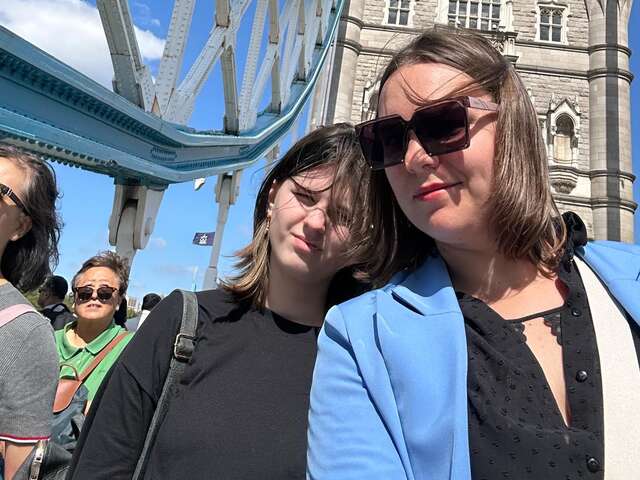
Veronika’s story
For 27-year-old Veronika, the moment she had to flee her home in Kyiv is still clear in her memory. In February 2022, she received an early morning call from her parents that the war had escalated in Ukraine - she needed to pack a bag and get out immediately.
"I was just renting an apartment by myself, it was great and then it started," Veronika recalled.
"The first thing I had to do was go to the ATM to withdraw cash but it was 6am and there was already a huge queue. I just had one backpack. When your priorities change, you understand what is truly important."
After Veronika and her sister made their way to Poland to reunite with their mum, they decided to come to London for work.
While she was able to keep her job as a software developer, the transition has taken a significant toll on Veronika’s mental health.
We don't feel like we have a home because of so much moving. We can't go back to Donetsk, and I have no real home anymore because everyone's spread out everywhere. Not having a place to come back to, it just takes away something.
Veronika - who participated in an Integration course at the IRC which helps people navigate British systems - has noticed things are changing both in Ukraine and the UK when it comes to mental health.
"It's changing, especially for the younger generation, but it takes time," she said. "I've been working on my mental health with online resources and therapy here in the UK."
As well as trying to improve her own mental health, Veronika recognises the challenges those who have been displaced face integrating into new communities, especially with language barriers.
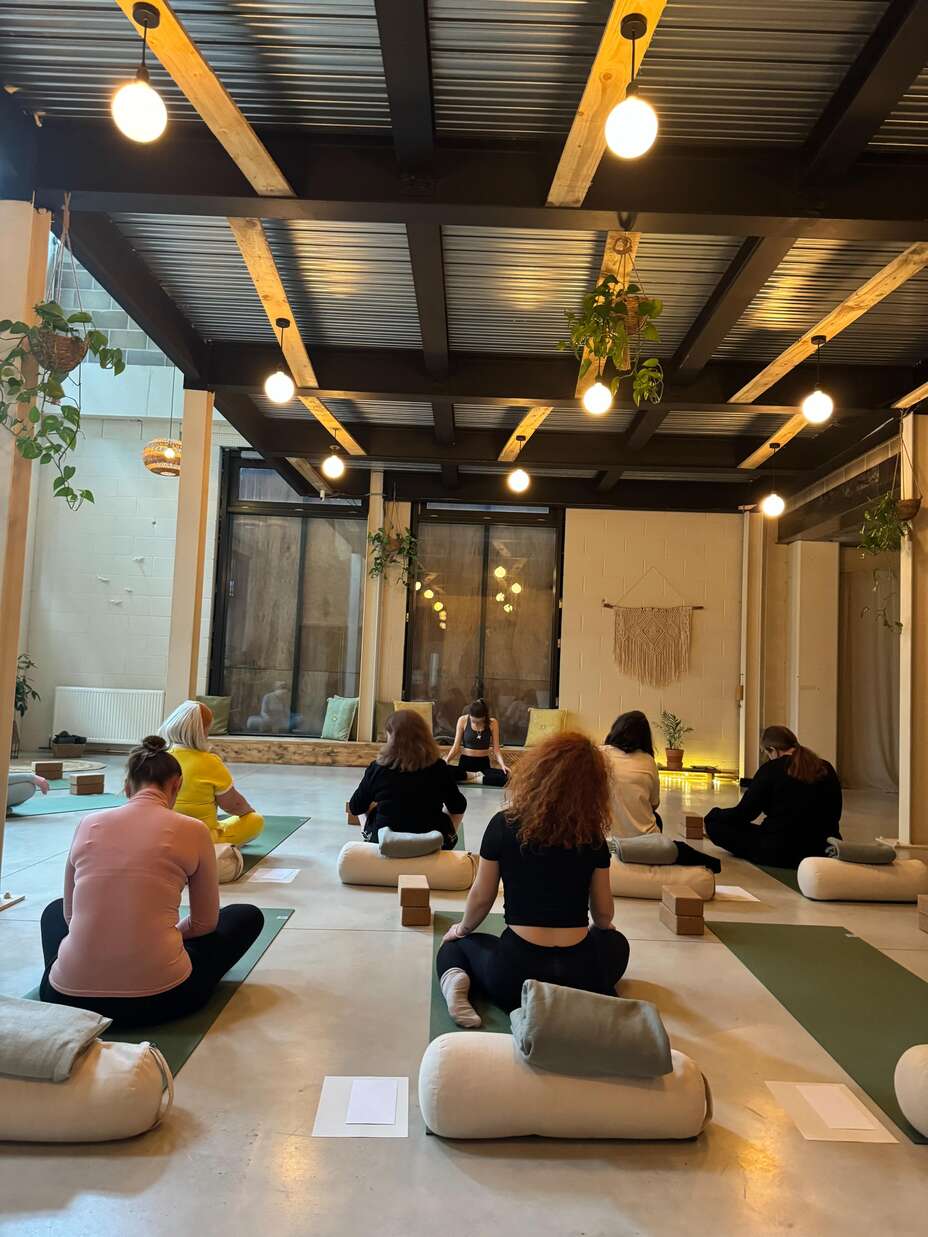
"There are a lot of issues that people go through, like finding work is a huge issue," she said.
"English is a second language, and not many older Ukrainians use it as much as the younger generation, so it's definitely tough."
Though her dreams are to one day return to Ukraine and pursue a new career working with dogs, Veronika's main hope is to be reunited with her family without restrictions.
"I want my family to be free to visit each other," she said. "And I'll take my boyfriend to see Ukraine when it's safe."
Read more: Life in the UK after fleeing Ukraine two years on
What is the International Rescue Committee?
The International Rescue Committee (IRC) helps people affected by humanitarian crises to survive, recover and rebuild their lives. We work in over 50 crisis-affected countries.
The IRC in the UK
In addition to helping people in the midst of humanitarian crises, the IRC helps refugees living in the UK recover and rebuild their lives. Read about our UK programmes.




